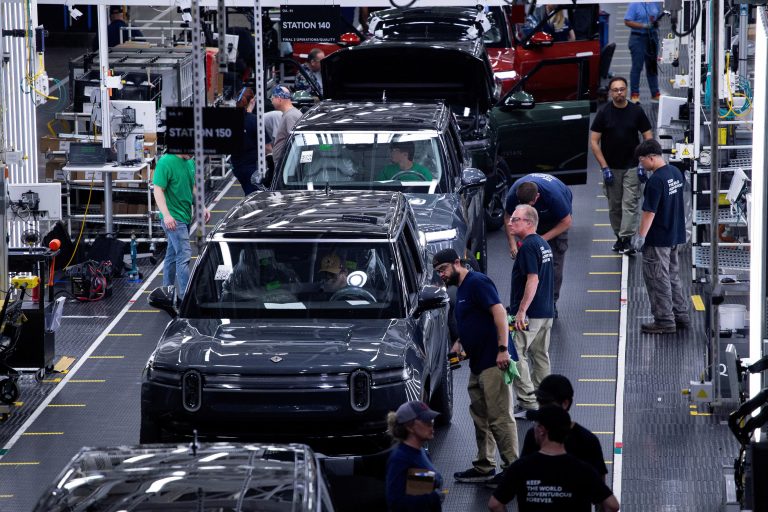Volkswagen Group (VW) has boosted its investment in a joint venture with electric vehicle (EV) maker Rivian, now valued at $5.8 billion (£4.55bn). The partnership, initially set at $5 billion, has resulted in a more than 9% surge in Rivian’s shares in after-hours trading following the announcement.
The collaboration aims to share critical EV technology at a time when global demand for electric vehicles is slowing, and competition from Chinese manufacturers is intensifying. Under the agreement, Rivian will receive essential funding to support the launch of its upcoming R2 model. Slated for release next year, the R2 will be a more affordable, smaller sports utility vehicle (SUV), designed to broaden Rivian’s market appeal.
For Volkswagen, the joint venture offers access to Rivian’s cutting-edge EV technology, which will be integrated into VW’s own vehicle lineup. The first Volkswagen models featuring Rivian’s technology are expected to reach customers by 2027. The partnership is expected to reduce development costs and speed up the introduction of new technologies by combining the strengths of both companies.
In a statement, VW and Rivian emphasized the joint focus on scaling EV technologies more rapidly, with software engineers and developers from both companies working together at a new California-based hub. Additionally, the venture plans to establish three new facilities across North America and Europe to further support its efforts.
The collaboration comes at a critical juncture for Volkswagen, which has been grappling with rising costs, slowing sales, and mounting competition from Chinese electric vehicle manufacturers. As Europe’s largest automaker, VW faces challenges in accelerating its shift away from petrol and diesel vehicles. Analysts expect that VW will soon announce major cost-cutting measures to address these issues.
For Rivian, the partnership represents a significant opportunity to streamline operations and strengthen its position in the market. The company is focused on improving supplier contracts and manufacturing efficiency amid softening demand for EVs. While Rivian has yet to turn a profit, its electric delivery vans, supplied primarily to Amazon—its largest shareholder—have been a critical part of its business. Amazon has ordered 100,000 of these vehicles, all set to be delivered by the end of the decade.
With this strategic joint venture, both Volkswagen and Rivian are positioning themselves to better navigate the evolving and increasingly competitive EV market. By sharing technology and resources, the two companies aim to bring cutting-edge, affordable electric vehicles to consumers in the years ahead.

